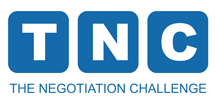Reservation point, also known as walk-away point or bottom line, is the lowest price or highest price that a negotiator is willing to accept in a negotiation. In other words, it is the point at which a negotiator would rather walk away from the negotiation than accept a lower or higher offer.
The reservation point is an important concept in negotiation because it helps negotiators to set realistic expectations and to avoid making concessions that they will later regret. It also helps negotiators to identify the zone of possible agreement (ZOPA), which is the range of prices or terms that both parties would be willing to accept.
For example, let’s say you are negotiating the purchase of a car. Your reservation point might be €20,000. This means that you would be willing to pay up to €20,000 for the car, but you would not be willing to pay any more than that. If the seller is unwilling to sell the car for €20,000, you would walk away from the negotiation.
Here are some tips for determining your reservation point:
- Do your research. The more you know about the market value of the item or service you are negotiating for, the easier it will be to determine your reservation point.
- Consider your BATNA. What is your best alternative to a negotiated agreement? If you have a strong BATNA, you will be in a better position to negotiate a favorable agreement.
- Be realistic. Don’t set your reservation point too high or too low. If you set it too high, you may miss out on a good deal. If you set it too low, you may end up paying more than you should.
By following these tips, you can determine your reservation point and increase your chances of success in negotiation.
Here is an illustrative example of a reservation point:
- A seller’s reservation point might be the market value of the item they are selling or its price/cost.
- A buyer’s reservation point might be the budget they have for the transaction.
- A union’s reservation point might be the lowest wage increase they are ready to accept.
- A company’s reservation point might be a certain level of cost.
The reservation point can vary depending on the specific situation. However, in general, a good reservation point will be realistic and will allow the negotiator to walk away from the negotiation if they do not get a favorable agreement.
